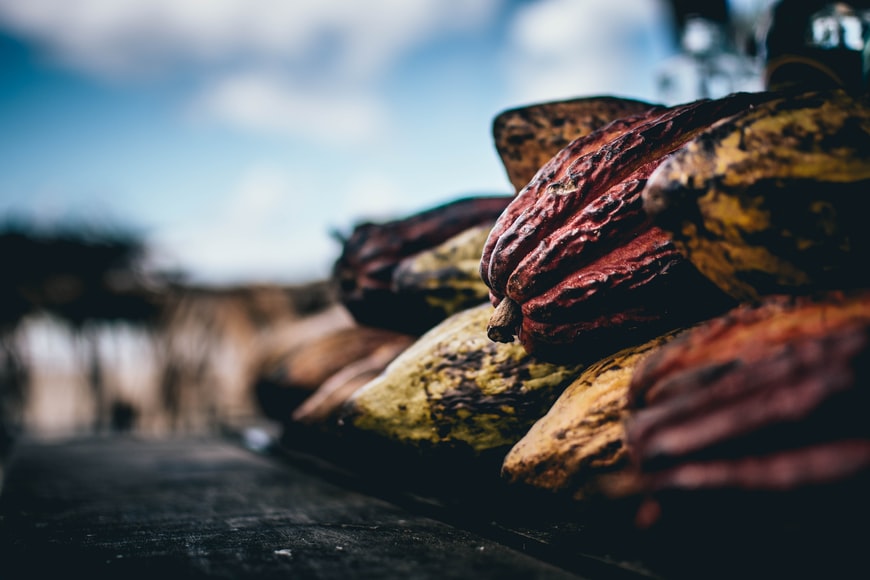The bitter taste of the chocolate industry

Online Lifestyle editor Katie Edgar explores student activism, the issue of child labour in chocolate production, and how small acts of consumer change can make a big difference.
Everyone loves chocolate. Or at least, everyone I know does. But few people know about the darker, bitter side of the chocolate industry that taints the food we all enjoy: child labour. It’s something none of us really consider when we pop to the shop for a treat or are choosing the snack to go with our meal deal, but child labour is an extreme problem in chocolate production, mainly in the growth of cocoa beans.
Most of the world’s chocolate supply comes from Ghana and the Ivory Coast, where there are serious problems of child labour. Child workers lose out on their human right to an education and their right to not have to work. Children engage in dangerous work in cocoa production, including burning fields, cutting down trees and spraying pesticides. Many of them are also forced to work and some are victims of human trafficking, both of which are classed as the worst forms of child labour under international law. There are many terrible accounts online from current and former child labourers in the chocolate industry, such as these testimonies collected by Action against Child Exploitation.
I’m not going to name names, but a quick Google search of the words ‘chocolate and child labour’ will find you many articles about famous chocolate brands that have been accused – and even faced lawsuits – of using child labour. You can make up your own mind about the validity of these complaints.
It may not seem like much, but small changes can have an incremental impact that grows over time.
But what can we do about any of this? It often seems incredibly daunting, when dealing with any kind of activism, as it can feel as though we as individuals can’t really have an impact on such a major issue.
One way to deal with this is to think about small changes we can make that, collectively, can add up to make a big difference. We won’t necessarily be able to solve the entire problem right away, but we can make a start. You won’t solve the climate crisis by using less single-use plastic, but we can all do this to help contribute to ending plastic pollution. And it’s the same with child labour. We can’t force cocoa farms in other countries to stop using child workers, but we can choose to buy from companies that guarantee they don’t use child labour. It may not seem like much, but small changes can have an incremental impact that grows over time.
There are various chocolate companies that guarantee they don’t use child labour, and many of them are a lot easier to find than you might think. A personal favourite of mine is Tony’s Chocolonely, which sells a variety of different flavoured chocolates (including some that are vegan!) and actively campaigns against child labour and modern slavery in the chocolate industry. It is sold at many mainstream supermarkets, Oxfam, and even the Marketplace in the Forum (although they don’t have a big selection there). Another widely-sold brand is Divine, and some mainstream chocolates, including Maltesers, also guarantee they are child labour-free. If in doubt, look for the Fairtrade logo, as they forbid the use of child labour in their certified companies.
The products we enjoy shouldn’t come at the expense of other people’s human rights.
This article isn’t intended to make anyone feel guilty for not knowing about this issue, or for buying from chocolate brands that don’t guarantee they don’t use child labour. This is a problem I only recently found out about, and it is only through research for a module on human rights that I discovered the depth and prevalence of the issue. However, I think we should all make an effort to try to buy more chocolate from brands that definitely don’t use child labour, even if it’s only occasionally.
Many people nowadays are making an effort to be more conscious consumers, with the spotlight currently on ethical fashion, but the changes we make to our shopping habits shouldn’t stop there. Shopping more consciously often requires more effort – and more money – than continuing to buy from the famous brands we have all been shopping at for years. But that doesn’t mean we shouldn’t try to make that first small change. The products we enjoy shouldn’t come at the expense of other people’s human rights.
For more information on an Exeter student-led campaign to support the sale of child labour-free chocolate on campus, check out @fairchocolate_exeter on Instagram and our petition to the Marketplace on campus.


